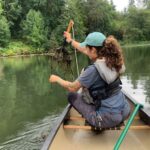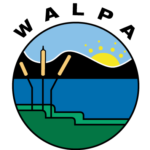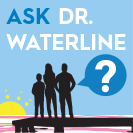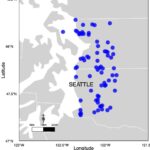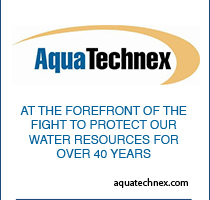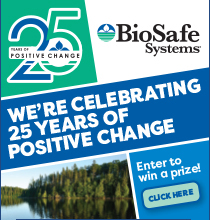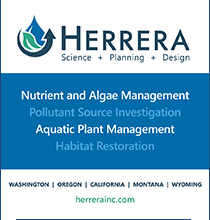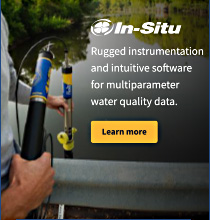Young naturalist makes important discovery at Lake Rasmussen
by Skye Pelliccia, King County Noxious Weed Control
In 2020, a second grader named Maggie made a startling discovery: she found Egeria densa, a rare invasive aquatic plant, in Duvall’s Lake Rasmussen. Thanks to her keen eye, we were able to prevent this Class B noxious weed from spreading from this small lake. Controlling this small infestation prevented a much larger problem as the lake feeds into the Snoqualmie River, which reaches many other water bodies, including Lake Sammamish. Egeria (formerly called Brazilian elodea) forms dense mats that clog waterways. Its dense growth leaves little room for fish or beneficial vegetation, and significantly reduces a waterbody’s habitat and recreational value.
Sign up for WALPA’s 35th annual conference and join our important DEI conversation!
Hey lake folks! If you haven’t already registered for WALPA’s Annual Conference slated for October 19-21, 2022 in Richland, please do! Our theme for this year is Adaptive Management to Prepare for the Future: The Future Ain’t What it Used to Be!
Starting on October 19, Wednesday’s workshops will include a demonstration of invasive species in lake habitats and remote sensing equipment for monitoring lake conditions.
First-ever Western Washington lakes workshop a zooming success!
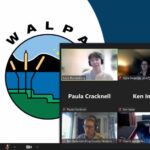 In June, WALPA hosted its first annual Western Washington Lakes Workshop. The event was planned by WALPA’s Public Outreach Committee as an opportunity for lake-area residents and recreators to learn more about lake ecosystems and connect with communities across Western Washington.
In June, WALPA hosted its first annual Western Washington Lakes Workshop. The event was planned by WALPA’s Public Outreach Committee as an opportunity for lake-area residents and recreators to learn more about lake ecosystems and connect with communities across Western Washington.
Fifty-five people tuned in to Zoom to learn and share their experiences on local lakes. During the first half, experts presented on “Lakes 101,” addressing the topics of organizing a lake group, toxic algae, and aquatic plants. The second half kicked off with an open forum: three community members shared stories and pictures from Crystal Lake, Lake Marcel, and Vancouver Lake. A lively conversation followed with lots of questions, comments, advice, and ideas shared among many participants.
The Washington legislature, primary results, and goals for 2023
an update from WALPA’s Bylaws, Legislative and Policy Committee
by Matt Colston, chair
 As many readers know, Washington State’s legislature has 98 House seats and 49 Senate seats. Currently, Democrats control both chambers. In November’s general election, all 98 House seats are up for election, as are 23 of the Senate seats. Twenty-two state lawmakers are either stepping away from their positions or seeking positions in different houses of the legislature. Ten representatives are retiring, with another five seeking election to the Senate. Four Senate Democrats are retiring as well. One Senate Republican is running for another office but will keep his current seat even if he loses the race.
As many readers know, Washington State’s legislature has 98 House seats and 49 Senate seats. Currently, Democrats control both chambers. In November’s general election, all 98 House seats are up for election, as are 23 of the Senate seats. Twenty-two state lawmakers are either stepping away from their positions or seeking positions in different houses of the legislature. Ten representatives are retiring, with another five seeking election to the Senate. Four Senate Democrats are retiring as well. One Senate Republican is running for another office but will keep his current seat even if he loses the race.
Introducing the 2022 WALPA Scholarship winners!
Ask Dr. Waterline: What about that fertilizer law?
Dear Dr. Waterline:
What progress has been made to ban phosphorus-containing fertilizer in Washington? Lacamas, Round and Vancouver Lakes (in Southwest Washington) all have annual HABs. (harmful algae blooms).
From: Rodger Hauge (RCH)
Lacamas Watershed Council
WALPA membership survey results and next steps
Angela Strecker, Katie Ruthenberg, and Rebekah Stiling, WALPA Diversity, Equity, and Inclusion Committee
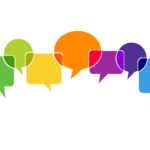 In 2021, the WALPA Diversity, Equity, and Inclusion (DEI) Committee conducted an anonymous survey of WALPA members. The purpose of the survey was: 1) learn about member interests and engagement; and 2) examine the demographic makeup of our membership. The survey consisted of 20 questions and was open for two months. We received 40 responses out of the roughly 700 email addresses in our database to which we sent the survey. This is a response rate of 6%. The email list includes anyone who has ever been a WALPA member, so we attribute the low response rate to fewer members remaining active.
In 2021, the WALPA Diversity, Equity, and Inclusion (DEI) Committee conducted an anonymous survey of WALPA members. The purpose of the survey was: 1) learn about member interests and engagement; and 2) examine the demographic makeup of our membership. The survey consisted of 20 questions and was open for two months. We received 40 responses out of the roughly 700 email addresses in our database to which we sent the survey. This is a response rate of 6%. The email list includes anyone who has ever been a WALPA member, so we attribute the low response rate to fewer members remaining active.
In this article, we highlight some key takeaways from the survey and proposed next steps.
Social media reveals human lake use patterns
Rachel Fricke, University of Washington Aquatic and Fisheries Sciences
Recent decades have seen a concerted effort to assign value to nature, with the goal of quantifying the benefits human society derives from natural ecosystems. People live and gather around water, and thus one metric for estimating the relative value of lakes to humans is visitation – or the number of people traveling to spend time at lakes, either in the water or on the shore. We refer to these often-intangible benefits humans gain from spending time in natural spaces as “cultural ecosystem services”, abbreviated as CES. Lake-associated CES can include habitat maintenance for species of interest to birders and naturalists, spiritual connection, and many types of recreation such as fishing, swimming, boating, and hiking.

